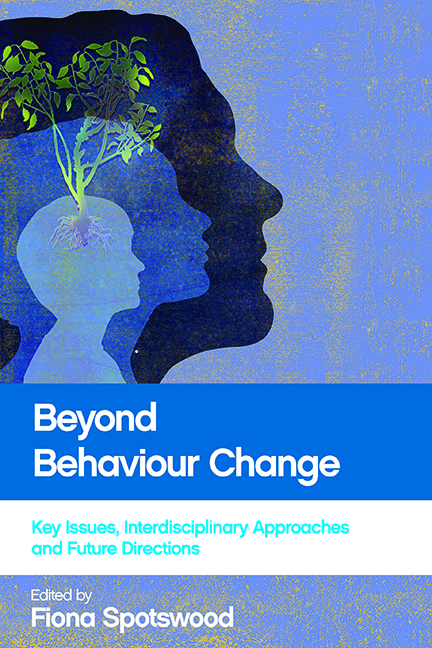six - Nudge: recent developments in behavioural science and public policy
Published online by Cambridge University Press: 01 September 2022
Summary
Introduction
As Chapters One, Four and Five have already explored from various angles, governments have always tried to influence the behaviour of those they govern. However, arguably the past 20 years have seen a new perspective develop among policymakers: they have become increasingly interested in the concept of ‘influencing behaviour’ itself as a generic policy challenge (Fletcher-Morgan and Leyland, 2010). This interest has been reflected in the increasing use in UK government documents of the terms ‘behaviour’ and ‘behaviour change’ as explicit targets for government activity (HM Government, 2010; Dolan et al, 2012, 2010). In the words of one recent study, ‘a behaviour change agenda has gradually been emerging’ (Jones et al, 2013, p xi).
Commentators have suggested various causes for this shift. Over recent decades, governments have increasingly been tasked with addressing new, complex challenges, such as obesity, climate change and social exclusion (Duit and Galaz, 2008). Arguably, the novelty of these policy problems has often encouraged policymakers to approach them more abstractly, as sets of ‘behaviours’ to encourage or discourage, in contrast to the established perceptions, stakeholders and routines associated with more traditional areas of government activity. Other commentators suggest that the rise of neoliberal practices and structures have led authorities to find new ways of ‘governing the soul’, such as shaping the way that individuals manage their own conduct (Rose, 1990).
For reasons of space, this chapter does not discuss these ideas in full. Instead, it focuses on another potential cause for the growth in the behaviour change agenda: changes in the analytic approaches available to governments, particularly the rise of ‘behavioural economics’. This is followed by a discussion of why these new approaches have proved attractive to the UK government in recent years; an account of the main institutional driver of such approaches in the UK, the Behavioural Insights Team established in the Cabinet Office in 2010; a comparison with social marketing approaches; and an examination of some common criticisms of applying these new analytic approaches to policy problems.
The rise of behavioural economics
The 20th century witnessed the rise of economics as the dominant mode of policy analysis, with economists emerging as ‘technical experts whose advice is essential to decision-making’ (Backhouse, 2002, p 308).
- Type
- Chapter
- Information
- Beyond Behaviour ChangeKey Issues, Interdisciplinary Approaches and Future Directions, pp. 113 - 134Publisher: Bristol University PressPrint publication year: 2016

